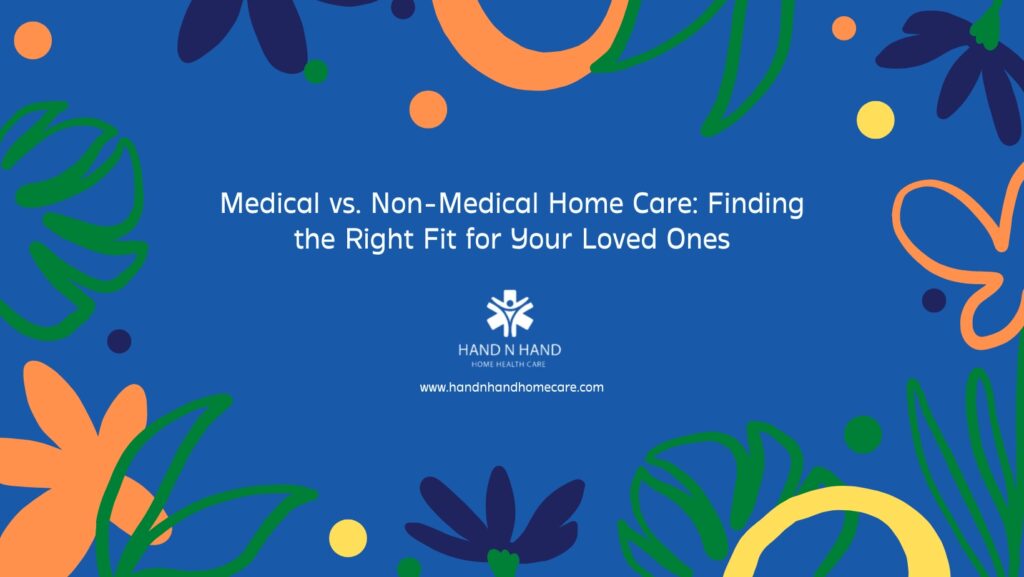
Medical vs. Non-Medical Home Care: Finding the Right Fit for Your Loved Ones
The decision to provide home care for a loved one can be a challenging one. With an array of options available, families often grapple with the choice between medical and non-medical home care. Both have their unique benefits, and the best choice often depends on the specific needs of your loved one. Here’s a comparison to help you make an informed decision.
Medical Home Care
What is it?
Medical home care provides clinical services to patients in the comfort of their homes. These services are typically administered by healthcare professionals like nurses, therapists, and doctors.
Benefits:
- Clinical Expertise: Medical home care offers skilled nursing and therapy services, ensuring your loved ones receive the best clinical care.
- Medication Management: Skilled professionals can oversee and administer medications, reducing the risk of errors.
- Therapeutic Services: Physical, occupational, and speech therapy can be provided to aid recovery and improve quality of life.
Non-Medical Home Care
What is it?
Non-medical home care focuses on aiding with daily living activities and ensuring the patient’s comfort and well-being. Caregivers, rather than clinical staff, usually provide these services.
Benefits:
- Personal Care: Assistance with bathing, grooming, and dressing can be provided.
- Companionship: Caregivers offer emotional support, companionship, and engage in social activities with the patient.
- Household Help: Non-medical caregivers can assist with tasks like cooking, cleaning, and grocery shopping.
Making the Decision:
- Assess the Needs: The choice often boils down to the specific needs of your loved one. If they require clinical services like wound care, medication administration, or therapy, medical home care might be the better choice.
- Duration and Frequency: Non-medical home care can often be more flexible in terms of duration and frequency, making it a suitable choice for families looking for part-time assistance.
- Cost Considerations: Non-medical home care might be more affordable than its medical counterpart. However, insurance might cover some medical home care services.
- Comfort and Trust: Ensure that your loved one feels comfortable with the caregiver or medical professional. Trust is crucial in ensuring a positive care experience.
